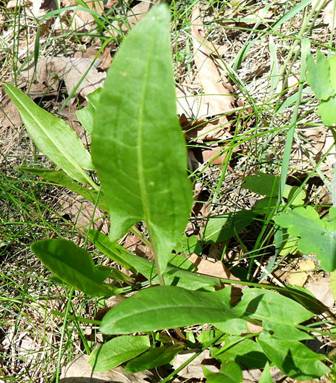
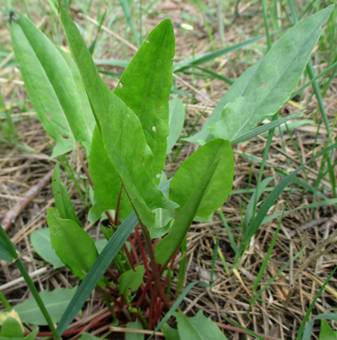
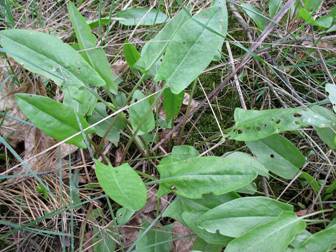
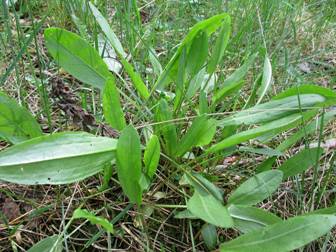
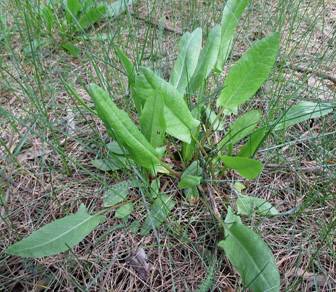
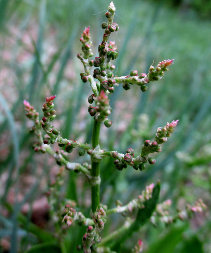
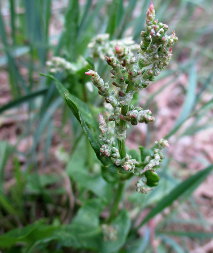
Dock, Sorrel (Rumex), fam. Polygonaceae.
Common (garden) Sorrel, Narrow-leaf Dock (Rumex acetosa). Grows in the forest in mildly sunny places.
Young leaves are edible, though the proportion of their benefit and harm is doubtful. There are lots of edible greens, but many people love sorrel most of them, and sometimes grow it purposefully – maybe, for the sake of its original sour taste. However, this taste is due to presence of quite toxic oxalic acid, though also in combination with harmless citric acid. There are many disadvantages of oxalic acid: it binds to calcium, impeding its assimilation; it precipitates as calcium salts in kidneys; it also has local irritative action on mucosa of the mouth and all the digestive tract.
For all that, there are two radically opposite opinions:
1) "Raw oxalic acid is organic, and not toxic but even somewhat beneficial; but the cooked oxalic acid is dead and cause salt deposition in kidney stones!";
2) "You must always cook the products with oxalic acid to bind it with calcium and render innocuous".
The conclusion – science is still helpless to say anything reliable in this regard. We can only give you an advice not to overconsume oxalate-rich products.
Among the beneficial properties of sorrel are: abundancy of vitamins C, E, protein and minerals; stimulation of digestion and liver function.
Other species with large, wide leaves are not edible at all. These are Asiatic Dock or Mossy Sorrel (Rumex confertus)…
…And Great Water Dock (Rumex hydrolapatum), growing along the sides of rivers and lakes.